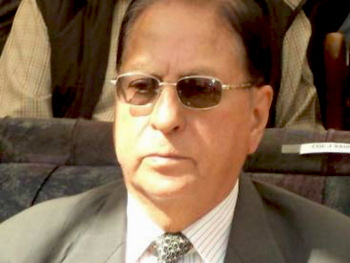Srinagar, Oct 12: Noted Kashmiri writer and poet Ghulam Nabi Khayal has joined the bandwagon of authors returning their Sahitya Akademi awards, saying the minorities in the country today feel "unsafe and threatened".

Khayal, who won the prestigious honour for his book 'Gashik Minaar' (Luminaries) in 1975, said he would soon return the cash prize and copper plaque to the Akademi.
"The government has failed in fulfilling its duty of protecting the minorities as enshrined in the Constitution of the country," he said.
"I cannot witness such worst situation as a mute spectator. So, I have decided to return the Akademi award in protest against the growing hatred against minorities in India," he said.
This is the first time that a Kashmiri writer has decided to return the literary honour to protest the "communal atmosphere" in some parts of the country "which is spreading its tentacles from Maharashtra to Uttar Pradesh and elsewhere".
"After the BJP-led government assumed power in India, an alarming communal situation has started arising. Adverse regional and religious polarization is happening in entire India and Jammu and Kashmir is no exception," he added.
The writer said the religious harmony and secularism of the country is under threat today.
"Free speech and many religious identities are facing life threat from communal forces but the Prime Minister has kept mum even after churches were burnt and Muslims were killed and religious duties were banned," he said.
He also criticized Prime Minster Narendra Modi for his "delayed reaction" over the Dadri lynching incident.
"The BJP is now curbing the fundamental rights of the people by forcing people to change their food habits," Khayal said.
Many in the literary fraternity have of late raised their voices against the killing of Kannada writer and Sahitya Akademi Award winner M M Kalburgi and anti-superstition activists Narendra Dabholkar and Govind Pansare, questioning the government and the Akademi's silence on such incidents.
The lynching of a Muslim man in Uttar Pradesh's Bisada village by a mob following rumours that he had eaten beef has also triggered a wave of protests.





Comments
Add new comment